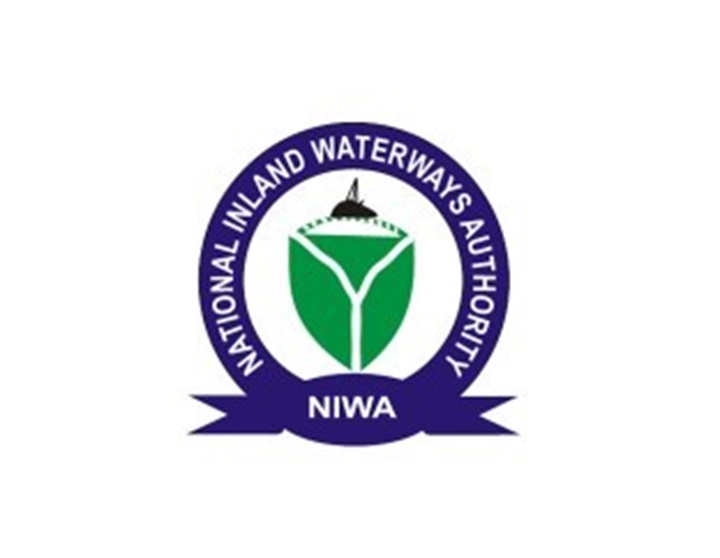The National Inland Waterways Authority (NIWA) has identified ballast water discharged from ships and other marine vessels as a major factor responsible for the persistent spread of water hyacinth across Nigeria’s inland waterways. The agency said the increasing infestation of the invasive aquatic plant, which continues to threaten navigation, fishing, and environmental sustainability, is largely linked to human activities associated with maritime transport.
Speaking in Lokoja during a stakeholders’ engagement on environmental protection and inland waterways management, the Managing Director of NIWA, Bola Oyebamiji, explained that the uncontrolled discharge of ballast water by foreign and local vessels had introduced water hyacinth and other invasive aquatic species into Nigeria’s waters. He noted that these practices have had long-term ecological and economic consequences for communities that depend on the waterways for livelihood and transport.

Oyebamiji stated that ballast water, which ships use to stabilize themselves during voyages, often contains microscopic organisms, plant seeds, and larvae that are carried from one region to another. When discharged into new environments, these species adapt, multiply rapidly, and disrupt native aquatic ecosystems. “Water hyacinth, in particular, has become a major problem for navigation and the environment. We have traced a large part of its spread to ballast water discharge, which introduces foreign plant materials into our waterways,” he said.
He added that the agency had intensified efforts to regulate and monitor waterway activities, ensuring vessels comply with international conventions on ballast water management. “NIWA is working with the Federal Ministry of Environment, the Nigerian Ports Authority (NPA), and international maritime bodies to enforce stricter control measures. We are also adopting innovative solutions to remove and manage water hyacinth infestations across critical river channels,” he said.
The NIWA boss lamented that water hyacinth had caused significant disruptions to economic activities along the nation’s major rivers, particularly the Niger and Benue. He explained that the invasive plant blocks navigation routes, damages boat engines, and reduces oxygen levels in water, leading to the death of fish and other aquatic species. “Communities along our waterways have suffered economic losses due to the spread of this plant. It also affects hydropower generation and increases the cost of maintenance for transport operators,” Oyebamiji added.
He revealed that NIWA had deployed mechanical harvesters and dredging equipment to clear several sections of the waterways affected by water hyacinth. According to him, the agency is implementing a continuous monitoring and removal strategy that includes both mechanical and biological control methods. “We have cleared major stretches of the Lower Niger and are working in collaboration with local communities to sustain the efforts,” he said.
Environmental experts at the event also emphasized that water hyacinth has become one of the most aggressive aquatic weeds in Nigeria, spreading rapidly during the rainy season and covering vast portions of rivers and lagoons. They noted that apart from ballast water, factors such as agricultural runoff, pollution, and poor waste management also contribute to its growth.
A marine ecologist, Dr. Aisha Sule, explained that the plant thrives in nutrient-rich environments and can double in size within two weeks under favorable conditions. “The challenge with water hyacinth is that it grows uncontrollably, forming dense mats that obstruct sunlight and deplete oxygen levels, which is harmful to aquatic life. Its control requires a coordinated national effort involving multiple agencies,” she said.
NIWA’s environmental division has also launched sensitization programs to educate riverine communities and boat operators on the dangers of indiscriminate waste disposal and ballast water release. Oyebamiji disclosed that awareness campaigns were ongoing in Lagos, Port Harcourt, and Kogi to promote compliance with safe maritime environmental practices.
He called for stronger inter-agency collaboration to effectively combat the menace, urging shipping companies and maritime operators to adopt best practices for ballast water treatment. “The fight against water hyacinth cannot be won by NIWA alone. It requires cooperation from all maritime stakeholders, including ship owners, local governments, and environmental organizations,” he stressed.
In addition, Oyebamiji noted that NIWA is engaging research institutions to develop local biological control agents capable of curbing the weed’s spread sustainably. He said that research into the use of certain insects that feed on the plant, combined with community-based removal projects, had shown promising results in pilot programs across parts of Kogi and Anambra states.
Meanwhile, the Federal Ministry of Environment has reiterated its support for NIWA’s initiatives, emphasizing the need for a national framework for ballast water management in line with the International Maritime Organization (IMO) regulations. The ministry noted that such a framework would help Nigeria reduce the ecological risks associated with invasive species and enhance the productivity of its inland waterways.
With NIWA’s new focus on addressing ballast water discharge and improving regulatory enforcement, stakeholders expressed optimism that the spread of water hyacinth can be gradually contained. The agency affirmed its commitment to restoring navigability and ensuring that Nigeria’s inland waterways continue to serve as a viable channel for commerce, tourism, and sustainable development.
As efforts intensify, NIWA said it remains determined to transform the nation’s waterways into cleaner, safer, and more productive routes, free from the disruptions caused by the persistent invasion of water hyacinth.
Support InfoStride News' Credible Journalism: Only credible journalism can guarantee a fair, accountable and transparent society, including democracy and government. It involves a lot of efforts and money. We need your support. Click here to Donate
